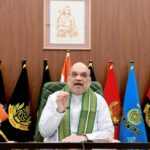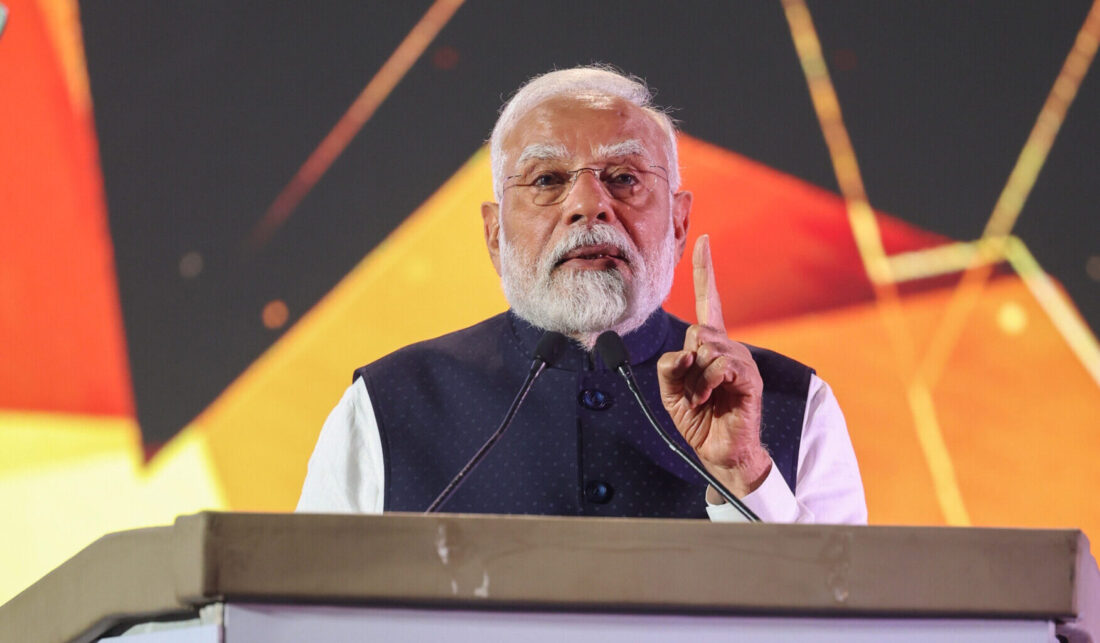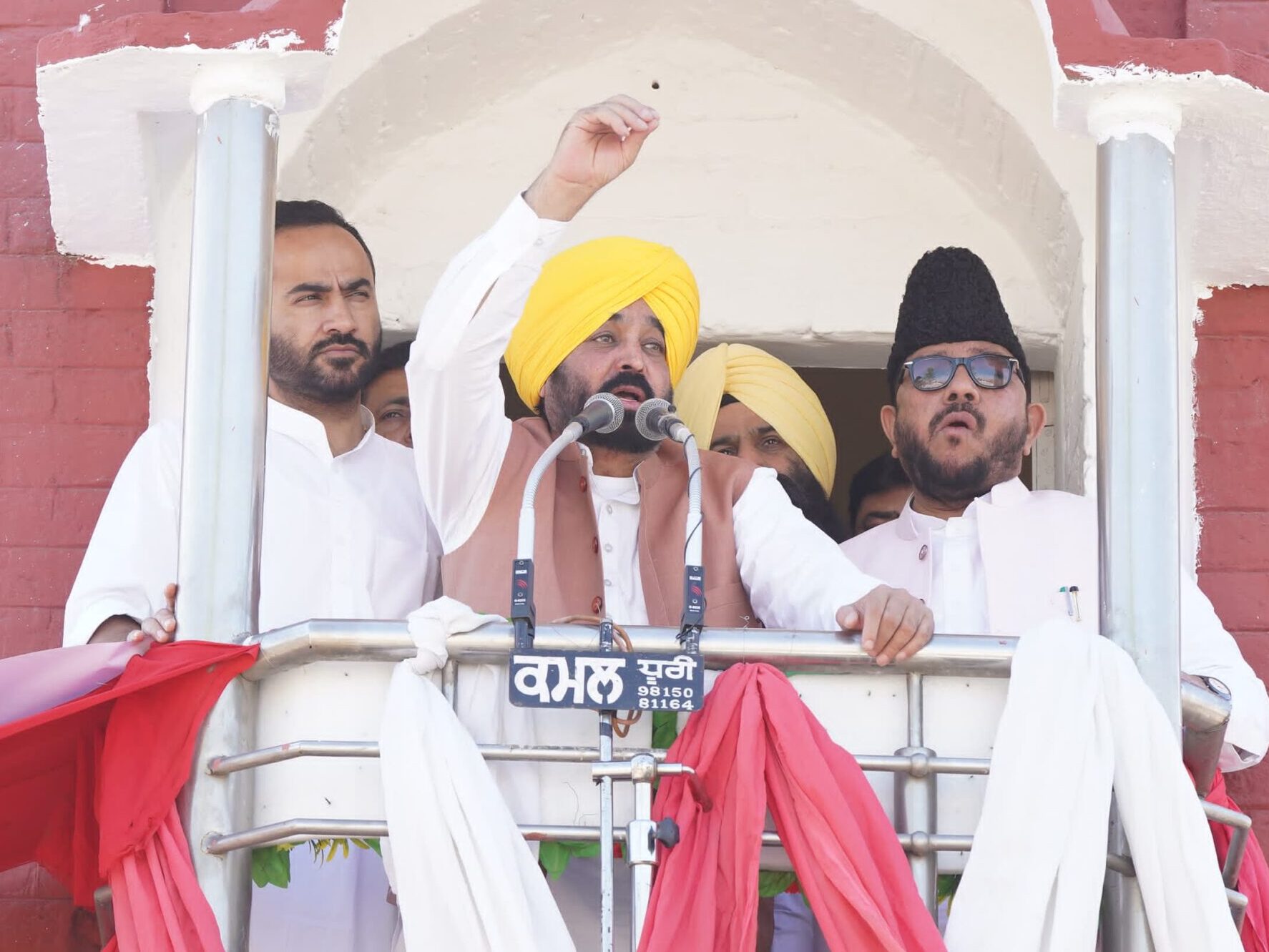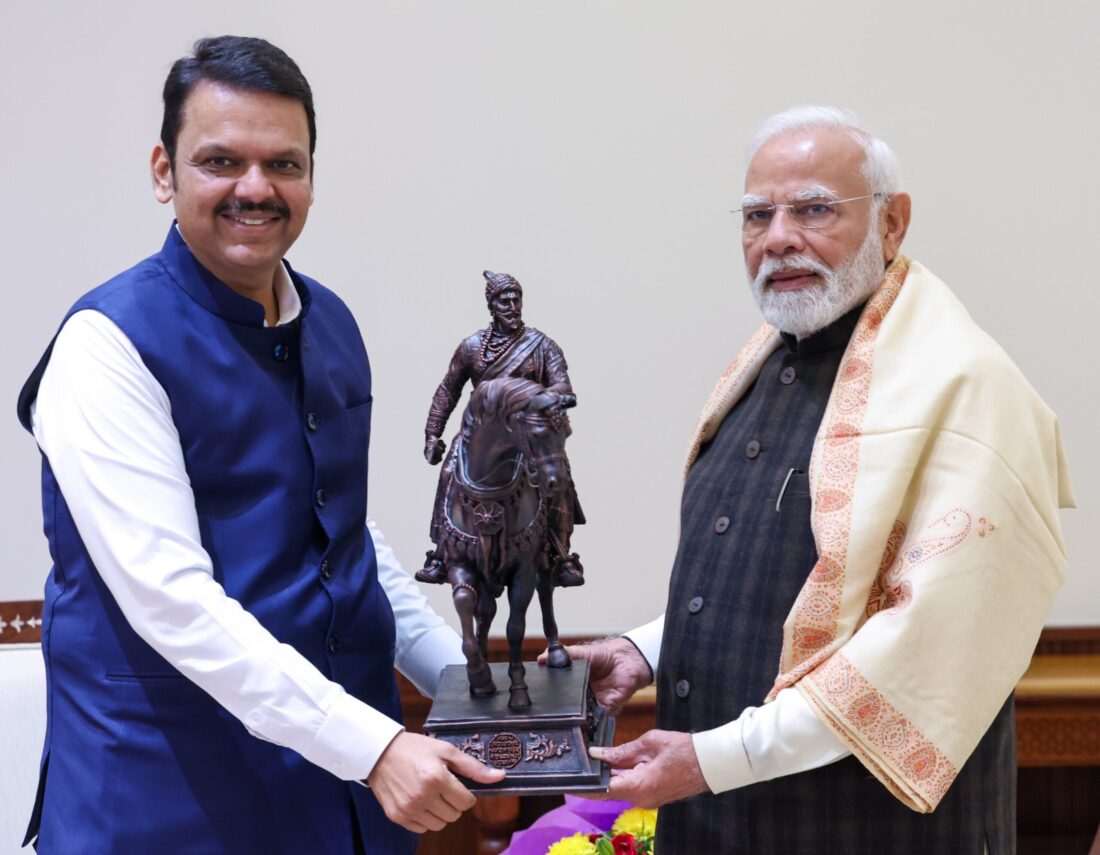The North News
New Delhi, March 29
Prime Minister Narendra Modi has highlighted India’s economic transformation, foreign policy shift, and governance reforms, asserting that the world is now keenly observing the country’s rise. Modi remarked that India, home to the world’s largest youth population, is rapidly advancing in skill development and innovation. He noted that while India once maintained equal distance from all nations, it now follows an “equi-closeness” approach, ensuring strong ties across geopolitical spectrums.
Speaking at the TV9 Summit 2025 in Bharat Mandapam, he emphasized India’s role in shaping global discourse, strengthening economic resilience, and fostering international cooperation.
The Prime Minister underscored India’s economic growth, stating that it has risen from the 11th-largest economy to the 5th in just seven years. Citing the International Monetary Fund (IMF), he claimed India is the only major economy to have doubled its GDP in the last decade, adding $2 trillion to its economy. This expansion, he said, has lifted 250 million people out of poverty and created a new socio-economic class—the “neo-middle class”—that is shaping India’s future.
Modi positioned India as a global leader in economic corridors, emphasizing the India–Middle East–Europe Economic Corridor (IMEC) as a vital trade route strengthening global supply chains. He further stated that India’s economic policies are designed to foster inclusivity and stability in a rapidly changing world.
Highlighting India’s contributions to global security, Modi pointed to its handling of the COVID-19 pandemic, vaccine development, and medical aid to over 150 countries. He also referenced India’s leadership in disaster resilience, citing the Coalition for Disaster Resilient Infrastructure (CDRI) initiative, which aims to safeguard infrastructure worldwide.
The Prime Minister reiterated India’s commitment to sustainable energy through the International Solar Alliance (ISA), a coalition of over 100 nations working toward green energy solutions. He emphasized that India’s leadership in these areas ensures both environmental sustainability and economic security for developing nations, particularly in the Global South.
During the G20 Summit under India’s presidency, the country spearheaded the inclusion of the African Union as a permanent member—an effort Modi framed as a step toward making global institutions more participatory. He also pointed to India’s influence in areas like International Yoga Day, WHO’s Global Centre for Traditional Medicine, and shaping regulations on artificial intelligence.
Modi credited his government with improving governance efficiency and reducing bureaucratic red tape. He highlighted efforts to modernize banking infrastructure, increase transparency in government procurement through the Government e-Marketplace (GeM), and digitize transactions through the Direct Benefit Transfer (DBT) system, which he claimed has saved taxpayers over ₹3 trillion.
Discussing administrative reforms, he noted the merger of key ministries, such as Housing and Urban Affairs, and the integration of water resources management under the Jal Shakti Ministry. He further claimed that his government has abolished 1,500 outdated laws and removed 40,000 compliance regulations to streamline governance.
Modi also pointed to improvements in passport services, stating that the number of passport centers has grown from 77 to over 550, while processing times have been cut from 50 days to less than a week. He argued that these reforms reflect a broader effort to enhance citizen convenience and efficiency.
Reflecting on India’s progress over the last decade, Modi contrasted past governance inefficiencies with today’s achievements. He cited programs like the Swachh Bharat Mission, Ayushman Bharat, Ujjwala Yojana, and Jan Dhan Yojana as examples of transformative policies that have directly improved citizens’ lives.
“India is no longer just a ‘nation of dreams’ but a ‘nation that delivers,’” he declared, emphasizing that the country’s development model is gaining global recognition.
















